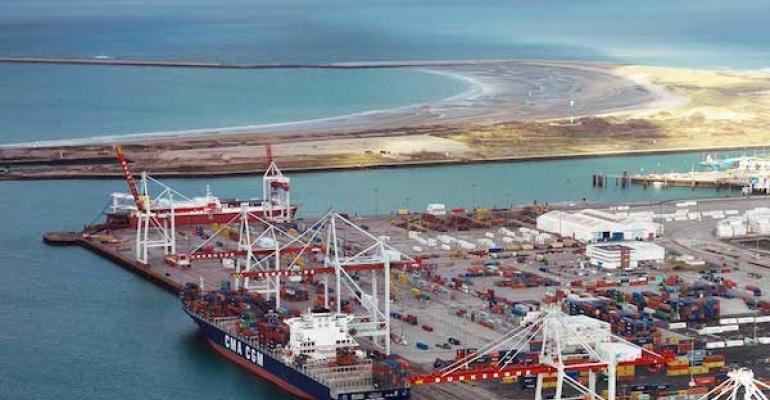Volumes comprised 49% dry bulk, 35% general cargo and 10% liquid bulk - including the port’s first arrival of LNG; at 6% containers reached a record 374,000 teu (+10% y-o-y), triggering the start of works to expand the Flanders Quay box terminal (pictured).
Dunkerque also now forms part of “France’s largest port hub” after last year finalising its new ‘Norlink’ teaming with neighbouring ports Calais (mainly ferries) and Boulogne (fishing), all part of the country’s northern Hauts-de-France administrative region, announced chairman François Soulet de Brugiere at the port authority’s annual results press conference held in Lille yesterday. Together the three Norlink ports totalled over 100m tonnes in 2017, comfortably ahead of France’s two other port hubs of HAROPA (Le Havre, Rouen and Paris/Seine) and Marseille-Fos, he said.
And Dunkerque itself received a major global PR boost during the year with the release of the highly acclaimed film of the same named - which had been shot in the city and involved dredging of one of the port’s quays, officials disclosed.
However, Brexit continues to pose uncertainties over the future of all the Norlink ports’ cross-channel ro-ro traffic with the UK - which totalled 2.6m units last year, some 600,000 from Dunkerque and the rest from Calais. Lack of space at the Port of Dover in the UK to hold freight vehicles while carrying out the necessary border/customs checks remains a major issue, said the Dunkerque chairman, stressing that if these checks were to be carried out in France then “the British will have to pay for them”.
The remarks were in line with sentiments expressed by the Mayor of Calais this week about France wishing to revise the 2003 Le Touquet agreement with the UK, which provides juxtaposed border controls in Channel ports. The frontier agreement has led to high-profile problems with the massing of migrants in Calais, and is expected to feature in talks between the countries’ leaders Theresa May and Emanuel Macron later this week.
But the Dunkerque authorities confirmed that their passenger and ro-ro ferry client DFDS had told them that it was “expecting growth” on the Channel despite Brexit. Such confidence tallies with figures released this week that the ferry industry serving the UK has announced more than £1bn of investments for new ships, port and service facilities in the next four years, according to UK body Discover Ferries.
Copyright © 2024. All rights reserved. Seatrade, a trading name of Informa Markets (UK) Limited. Add Seatrade Maritime News to your Google News feed.


